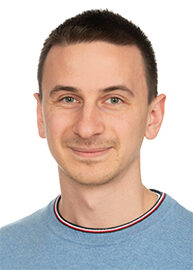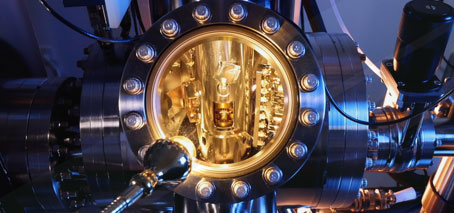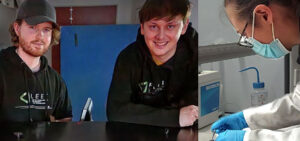
FTP project leader FLEET PhD candidate Julian Ceddia (Monash School of Physics and Astronomy)
FLEET Translation Program funding to automate the ‘boring parts’ of STM experiments, freeing up operators’ time
Monash PhD candidate Julian Ceddia has been awarded funding from the first round of the FLEET Translation Program to further develop the automation of Scanning Tunnelling Microscopes (STMs), based on previous work from the group of his supervisor, Agustin Schiffrin.
STMs are capable of obtaining images of surfaces with atomic-scale resolution by scanning an atomically-sharp probe across the surface of a sample while monitoring an electric current.
Standard operating practice is that the operator (often a PhD student or postdoc) must sit with the instrument for hours on end, acquiring images every few minutes, surveying a sample to assess its quality or to find a region of interest.
To accomplish this, the STM probe must be conditioned, via a process called ‘tip shaping’, into a state (e.g. sharp and free of contamination) that is capable of obtaining meaningful data.
“This process is common to all STM experiments and is often very tedious and time consuming, especially when aiming to acquire publication quality data,” says Julian Ceddia.
With funding from FLEET’s Translation Program, Julian will develop software to automate the ‘boring parts’ of STM experiments.

Co-founder FLEET CI A/Prof Agustin Schiffrin (Monash School of Physics and Astronomy)
He will use machine learning to analyse STM images to enable automated, informed decision making in real time. This will free up researchers to sleep at night knowing their sample is being carefully and accurately surveyed, allowing them to go straight to areas of interest in the morning to perform more complex measurements.
“We hope the software developed through this program will not only benefit STM labs around the world, but will be a significant step towards full automation of STM experiments in general,” says Agustin Schiffrin.
FLEET’s Translation Project identifies Centre members with the desire and capability to translate their research, and shepherds those projects towards commercialisation via funded HDR translation stipend, Translation Fellowships, and project facilitation funding.




